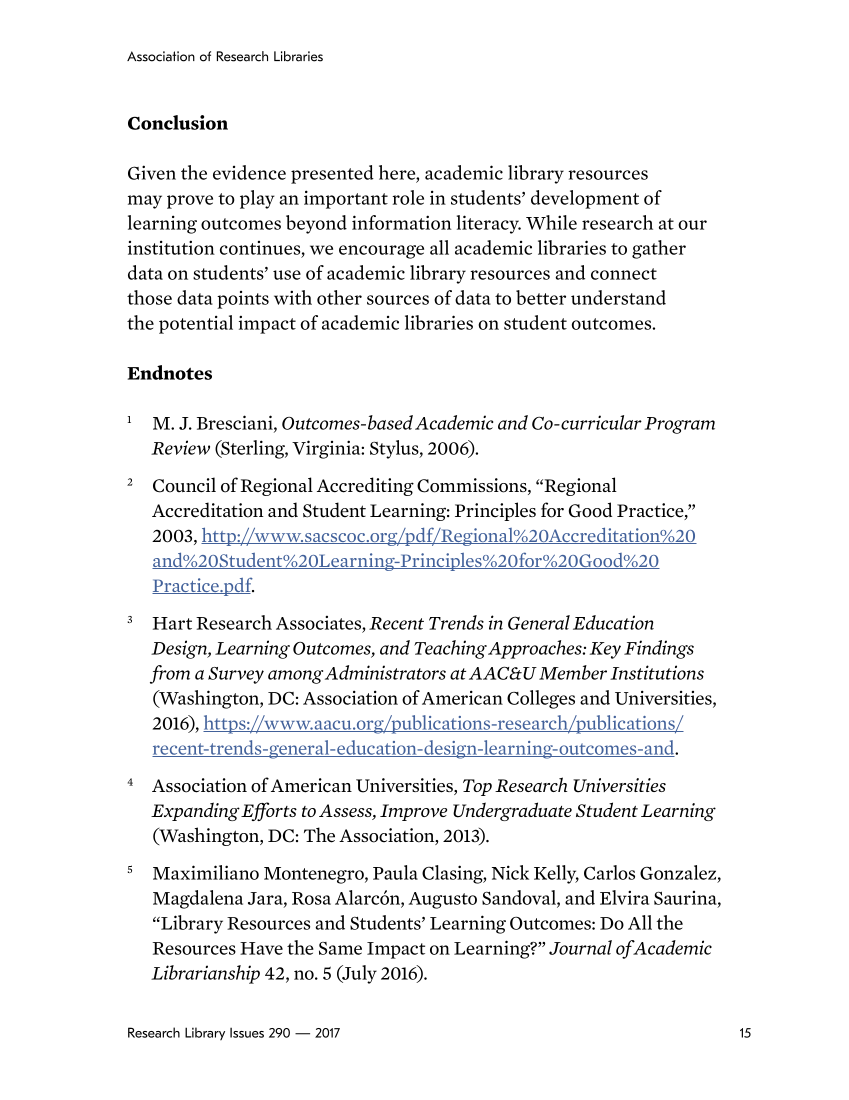15 Association of Research Libraries Research Library Issues 290 — 2017 Conclusion Given the evidence presented here, academic library resources may prove to play an important role in students’ development of learning outcomes beyond information literacy. While research at our institution continues, we encourage all academic libraries to gather data on students’ use of academic library resources and connect those data points with other sources of data to better understand the potential impact of academic libraries on student outcomes. Endnotes 1 M. J. Bresciani, Outcomes-based Academic and Co-curricular Program Review (Sterling, Virginia: Stylus, 2006). 2 Council of Regional Accrediting Commissions, “Regional Accreditation and Student Learning: Principles for Good Practice,” 2003, http://www.sacscoc.org/pdf/Regional%20Accreditation%20 and%20Student%20Learning-Principles%20for%20Good%20 Practice.pdf. 3 Hart Research Associates, Recent Trends in General Education Design, Learning Outcomes, and Teaching Approaches: Key Findings from a Survey among Administrators at AAC&U Member Institutions (Washington, DC: Association of American Colleges and Universities, 2016), https://www.aacu.org/publications-research/publications/ recent-trends-general-education-design-learning-outcomes-and. 4 Association of American Universities, Top Research Universities Expanding Efforts to Assess, Improve Undergraduate Student Learning (Washington, DC: The Association, 2013). 5 Maximiliano Montenegro, Paula Clasing, Nick Kelly, Carlos Gonzalez, Magdalena Jara, Rosa Alarcón, Augusto Sandoval, and Elvira Saurina, “Library Resources and Students’ Learning Outcomes: Do All the Resources Have the Same Impact on Learning?” Journal of Academic Librarianship 42, no. 5 (July 2016).









































